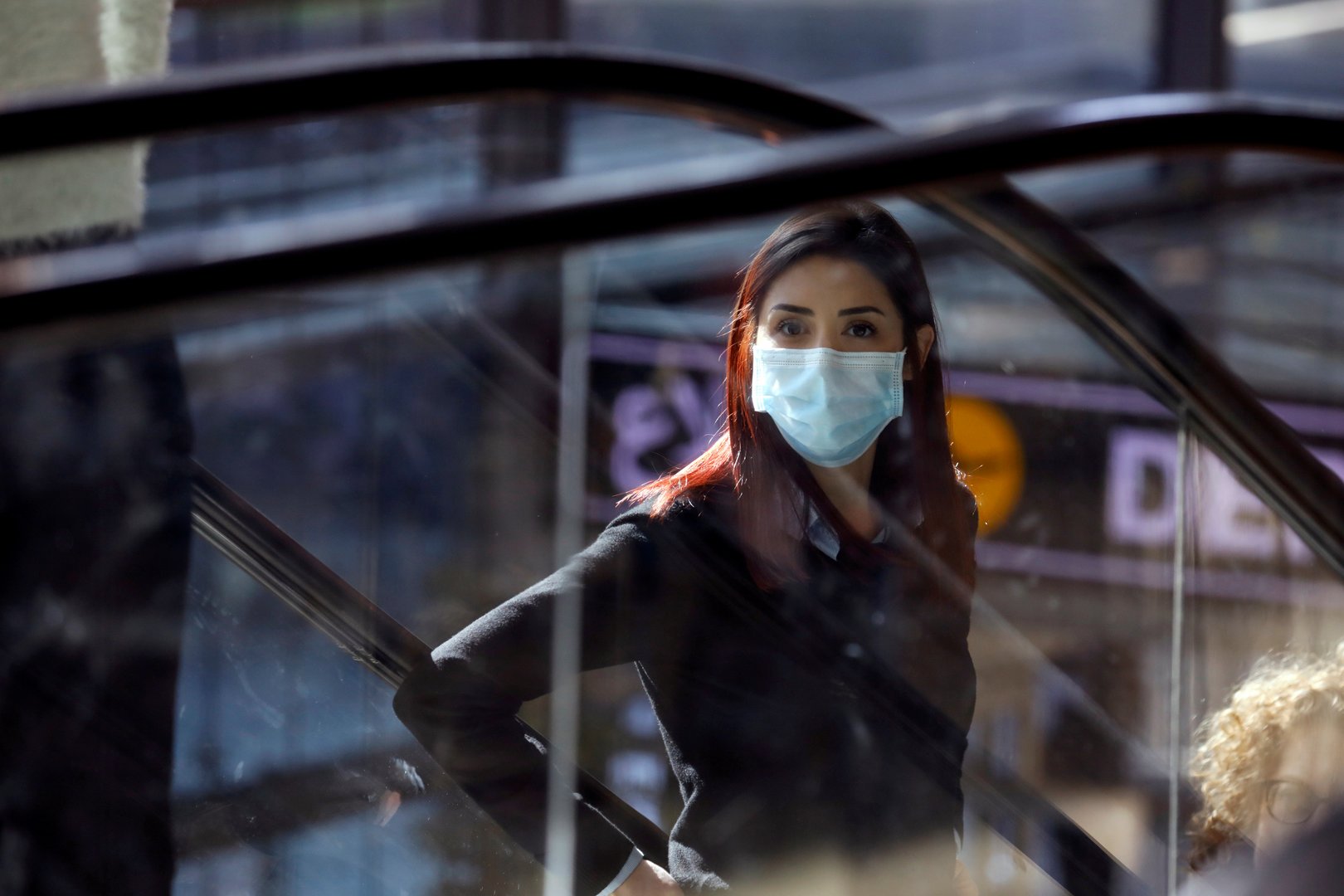The health ministry on Sunday issued advice for travellers due to the deteriorating situation as regards Covid-19.
“The fact that the Covid-19 pandemic has not ended and that SARS-CoV-2 with its continuous mutations remains a threat to public health is confirmed by the latest epidemiological data worldwide,” the ministry said.
“In Cyprus in recent weeks there has been an increase in the number of cases with a recent travel history in both tourists and Cypriot citizens.”
With the lifting of measures from most countries it said, has led to a new wave of infections and given the holiday period, travellers are urged to take more precautions, the ministry said.
The instructions are currently in the form of advice but Health Minister Michalis Hadjipantela would not rule out further measures following the mandatory reintroduction of indoor masks on Friday. He is to meet the scientific team in the coming week.
For now, the ministry said the risk to travellers varies depending on the country of destination. People who belong to a high-risk group are advised to take special care when traveling outside of Cyprus to avoid the risk of serious illness and hospitalisation.
In addition to the need for the application of personal protection measures, before, during and after travel) vaccination of the population “is a particularly important measure to limit the transmission of the disease”.
“Of course, fully vaccinated travellers also need to follow the recommendations and requirements of the destination country regarding the measures in force,” it added.
Before a trip, people should inform themselves as to the restrictions in place at their country of destination:
Re-open EU https://reopen.europa.eu · IATA Travel Centre https://www.iatatravelcentre.com/world.php
CDC COVID-19 Travel Recommendations by Destination https://www.cdc.gov/coronavirus/2019-ncov/travelers/map-and-travel-notices.html
Additionally, people can refer to the health and foreign ministries at home.
People who have a fever or respiratory symptoms such as difficulty breathing, cough, etc, should postpone their trip, the ministry said.
During the journey, travellers should take personal hygiene measures such as frequent hand washing with soap and water or use of an alcohol-based antiseptic.
They should also maintain a physical distance of more than 1.5 metres in all indoor and outdoor spaces, apply the mask wearing rules in the destination country and avoid contact with people with respiratory symptoms.
After returning home, people should monitor their health for 10 days and take regular tests during that time.
The EU, in a communication from the Commission to the European Parliament at the end of April said member states should be looking ahead to the autumn and winter and “be ready to roll out additional doses of vaccines”.
“Our response must be to maintain high levels of readiness for Covid-19 outbreaks and the emergence of new virus variants, and to step up vaccination coverage, with targeted efforts to reach those who are still unvaccinated,” the communication said.
“Closing vaccination gaps among adults, both within and between Member States, should remain the priority”.
According to the figures it cites, over 90 million eligible people in the EU/EEA2 are still unvaccinated, including approximately 9 million aged 60 and above. In addition, there are large differences in vaccination coverage rates across EU/EEA Member States.
In some, almost 85 per cent of the total population has received a full primary vaccination course; in others, the figure is less than 50 per cent, The percentage of adults over 18 in the EU/EEA who have received a booster has started to plateau, currently at around 64 per cent, it added.
This number includes all individuals eligible for vaccination, excluding children younger than 5 years. Less than 15 per cent of 5 to 9 years old have received a full primary vaccination course, it added.
Under ‘Key actions for Member States’, the communication said countries must “Strengthen efforts to increase the uptake or completion of the primary course among the unvaccinated or partially vaccinated including by continuously monitoring and analysing vaccine hesitancy to overcome it”.
Member states must also increase efforts on the uptake of booster doses by all eligible adults, starting from three months after the primary course and strengthen their efforts to increase vaccination coverage rates among younger children.
“Before the beginning of the 2022-2023 school year, consider strategies to increase vaccination coverage rates among younger children, e.g. by working with paediatricians and other health professionals who are trusted sources of information for many parents,” it added.







Click here to change your cookie preferences